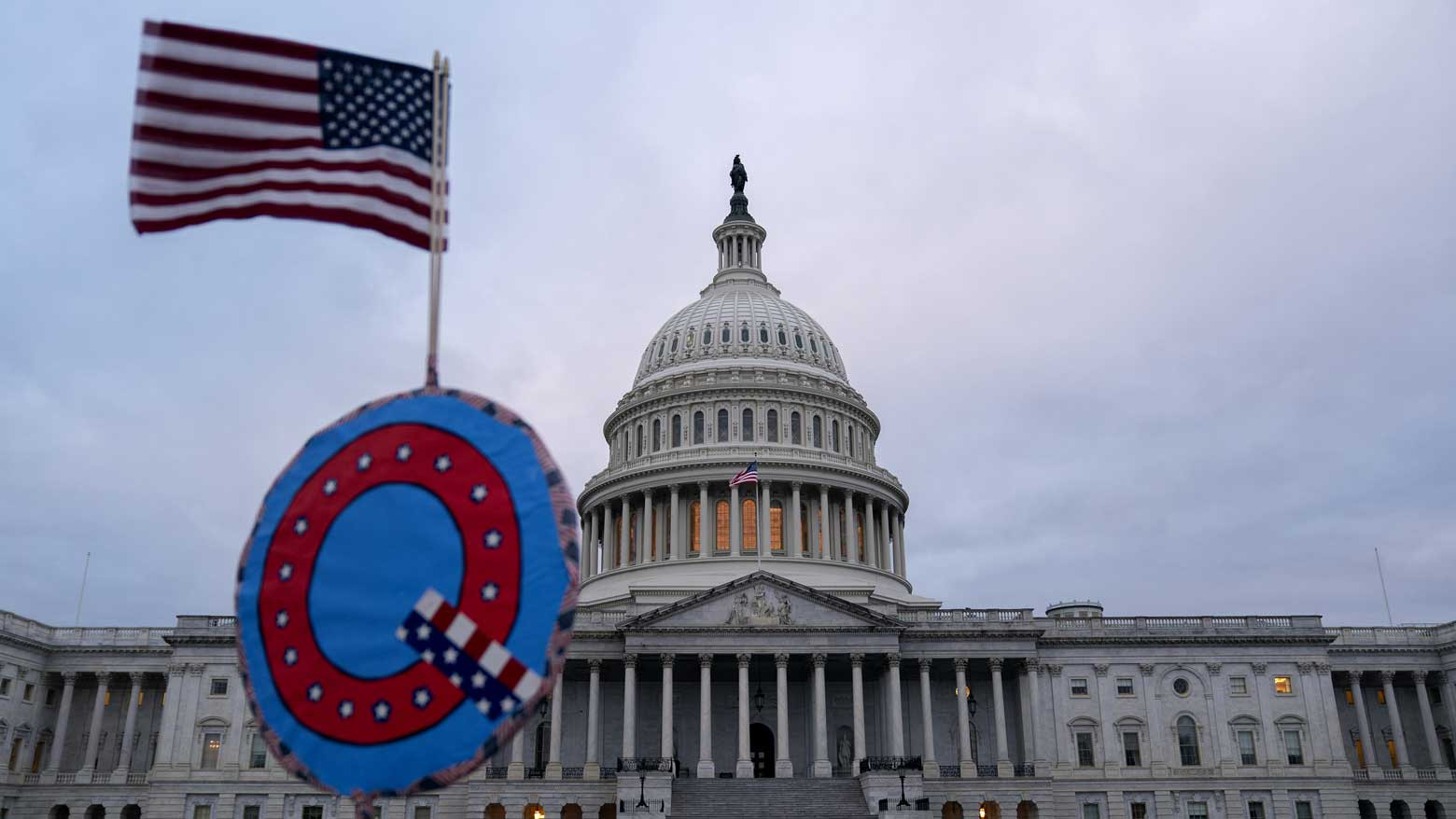
Understanding QAnon
A Comprehensive Analysis of a Modern Conspiracy Movement
At a Glance
QAnon is a far-reaching conspiracy theory movement that emerged in 2017, centered around anonymous posts claiming to reveal secret government intelligence. Despite being widely debunked by researchers, journalists, and fact-checkers, it has significantly influenced online discourse and real-world events, demonstrating the power of digital-age misinformation.
What is QAnon?
QAnon began as a series of cryptic messages posted on the anonymous imageboard 4chan in October 2017. An individual or group calling themselves “Q” claimed to have high-level government security clearance and began sharing what they described as classified information about a supposed secret war between Donald Trump and a global cabal of corrupt elites.
The movement’s name combines “Q” (referencing the anonymous poster) with “Anon” (short for anonymous, referring to the community of followers who interpret and spread these messages). Over time, QAnon evolved from isolated forum posts into a sprawling network of beliefs, narratives, and communities across multiple online platforms.
Core Beliefs and Claims
QAnon encompasses numerous interconnected conspiracy theories, but several central themes consistently appear:
The “Deep State” Narrative
Claims that a secret network of government officials, intelligence agencies, and political figures work to undermine elected leadership and maintain hidden control over policy and events.
Elite Conspiracy Theories
Allegations that wealthy individuals, celebrities, and politicians participate in secretive criminal activities, often involving elaborate cover-ups and manipulation of media and institutions.
Political Prophecies
Predictions about political events, arrests, and revelations that would supposedly expose corruption and vindicate the movement’s beliefs.
Media Distrust
Systematic rejection of mainstream news sources, positioning traditional journalism as complicit in covering up the “truth” that Q claims to reveal.
Timeline of Development
October 2017
First “Q drops” appear on 4chan‘s /pol/ board, making initial claims about government corruption and imminent arrests.
2018-2019
Movement migrates to 8chan (later 8kun) and expands to mainstream social media platforms like Facebook, Twitter, and YouTube. Dedicated communities form to decode and interpret Q’s messages.
2020
QAnon gains significant mainstream attention during the COVID-19 pandemic and 2020 election cycle. Several QAnon-affiliated candidates run for political office.
2021-Present
Major social media platforms implement restrictions on QAnon content. The movement adapts by migrating to alternative platforms and evolving its messaging strategies.
How QAnon Spreads
The movement’s growth demonstrates how conspiracy theories can proliferate in the digital age. Key factors in QAnon’s spread include:
Social Media Amplification
QAnon content spread rapidly across Facebook groups, Twitter hashtags, YouTube videos, and Instagram posts. Algorithms designed to increase engagement often promoted sensational content, helping conspiracy theories reach wider audiences.
Gamification Elements
Q’s cryptic posts, called “drops,” are designed like puzzles that followers attempt to decode. This interactive element creates a sense of participation and discovery, making adherents feel like they’re uncovering hidden truths through their own research.
Community Building
Online communities formed around shared interpretation of Q posts, creating social bonds and reinforcing beliefs through group validation. These communities provide belonging and purpose for participants.
Real-World Impact
Documented Consequences
While QAnon exists primarily online, it has had measurable real-world effects, including influencing political campaigns, motivating criminal activity in some cases, and affecting personal relationships when family members adopt QAnon beliefs.
Researchers have documented various impacts of QAnon belief systems on individuals and communities, from family separations to political activism. The movement has also influenced broader discussions about online misinformation, platform responsibility, and the psychology of conspiracy belief.
Research and Response
Academic researchers, journalists, and fact-checkers have extensively studied QAnon, examining its claims, tracking its spread, and analyzing its psychological and social appeal. Their work has consistently found that Q’s specific predictions have failed to materialize, and many central claims lack credible evidence.
Social media companies have implemented various policies to limit QAnon content, while educators and mental health professionals have developed resources to help people understand conspiracy thinking and maintain healthy relationships with those who hold these beliefs.
Understanding the Appeal
Researchers have identified several factors that may contribute to QAnon’s appeal:
Sense of Special Knowledge: The belief that one possesses secret information unavailable to others can provide feelings of importance and superiority.
Simple Explanations: Conspiracy theories often provide clear, albeit incorrect, explanations for complex social and political phenomena.
Community and Identity: QAnon communities offer social connection and shared identity for participants who may feel isolated or disconnected from mainstream society.
Distrust of Institutions: Pre-existing skepticism toward government, media, and other institutions can make alternative explanations more appealing.
This overview is intended for educational purposes and is based on documented research from academic institutions, journalism organizations, and fact-checking services.
Fact vs. Fiction: QAnon
| Claim | Reality |
|---|---|
| Q is a government insider with secret clearance. | ❌ False – No evidence shows Q was connected to government intelligence. |
| QAnon predictions have come true. | ❌ False – Major predictions, such as mass arrests, never occurred. |
| QAnon is a harmless internet game. | ⚠️ Partly true – Some saw it as a puzzle, but it has inspired real-world actions, protests, and even violence. |
| QAnon is rooted in proven corruption scandals. | ❌ False – While corruption exists, QAnon’s claims are unverified and often fabricated. |
| QAnon has influenced U.S. politics. | ✅ True – It has shaped discussions, inspired candidates, and influenced voter movements. |
📌 Quick Takeaway:
QAnon is a modern conspiracy movement that blends internet culture, politics, and myth-making. While debunked, it remains a case study in how online ideas can grow into real-world movements.

4 thoughts on “QAnon : Origins, Myths & Facts | Droogger”